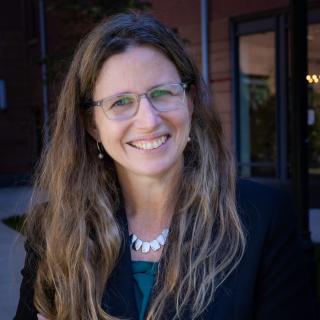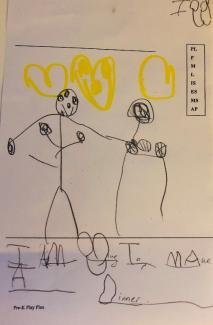
Into the unknown. Managing home-schooling and work in the age of COVID-19.
March 19, 2020
We might all wish for some magic in our worlds right now, but while waiting for that I thought I would share with others my practical approaches to home schooling. At least for me, there is no Olaf to keep the happy going, and I feel slapped with a reality I still struggle to understand heading into an unknown future. Unlike Elsa, I do not feel like singing out to the stars, and instead my head races as I try to find an unbalanced, chaotic structure for my home and my kids’ learning.
I use the words unbalanced and chaotic on purpose. I have realized after three days, (and in line with what I know from research) that I need to assume flexibility is the new norm. Flexibility through the day and across my four children since they have different learning styles and different ages. To do this, I create structure more around things to get done during the week or day and content to cover. Then there has to be choices, of which they tackle first each day, and within each content area, and choices of how.
How does this look on the best of days? For the preschooler, we start with a play plan in which he chooses what “center” to play in/with, what he is going to be, and what he is going to do. I do not really have centers at home. So what we did is discuss the things we have to play with, and what we would need to pretend we have (we can draw or make out of recycling). Today he chose to “cure animals”. I asked him to draw this, and then to look for animals (stuffed and alive) with which he could pretend to play. The dog got a check up. Every time he came to tell me he was done, I asked questions that would encourage him to do something more. In the end, I ask him to draw what he accomplished, which many times looks different from his original plan. Days when there is more free play, tons of drawing or painting, I prompt him with questions about ideas for what do to next. Or, for example, I give him a measuring tape, and encourage him to record in whatever way he can. What is longer? What is shorter?
For my K child, the teacher sent activity pages that have several options for math, phonics, writing, science, etc. Each has choices. He then chooses and tackles each content area, one at a time. He is restless though, so he has frequent breaks for movement. Gonoodle helps with this in my home. You can blast the music and dance it out, or sing it out, make them run a timed race, have them try to touch the roof. He feels absolute pride for anything accomplished, and I use this to my advantage as well as his.
I had to remind myself that school time is full of transitions that work as mental and physical breaks. When the kids are smaller, breaks are more often and shorter. For elementary school children these can be further spread apart. But that empty time when students clean their stuff, transition to lunch, organize their back backs at home has to exist as breaks.
I also acknowledge that siblings can help each other. They learn through this process as well. My 2nd and 3rd graders scaffold my younger ones. I have asked them to read together. And to ask the younger ones questions about the reading. This process helps them think about the story, content, and characters, as well as help someone else process it. My older kids seem to be able to self manage more, but depending on personality, get more easily distracted or not. They have post-its with activities that organize their day (they put the post its in whichever order they prefer), and as they accomplish something, they check it. The post-its include breaks, and exercise and relaxation. So this gives them a complete day.
I have realized I have too little technology for everyone, too many passwords to track, and too many websites to have as resources. Late last night I caved in and made a spreadsheet of all these links, because my head was spinning and I was feeling like I was missing something.
All in all, I live in a chaotic adventure, with my stress flowing through the day. At some point today I made all four kids run to the end of the street and back two times just so that they got rid of their energy. The attempts to Zoom or Skype with friends and family are healthy for them, but becomes one more thing to schedule. The 3rd grade teacher is taking attendance by 10 am, so even in my conference call today, I had to figure out a way to get in and mark her as present. I feel constantly as if am missing something important, either at work or at home.
I think in this unknown, it is important that we figure out a new chaotic state of balance. A state in which we manage both of our worlds with much different rules. I am not sure yet what this will look like. I keep readjusting. I also realized I have to break down my own work into small tasks that I can accomplish. Instead of editing a paper, I edit a section.
I think much like we recommend schools and systems do, we have to find a way to engage in some continuous improvement cycle in which we go from this low level of quality to a better state and we use the information around us to course correct. One day at a time.

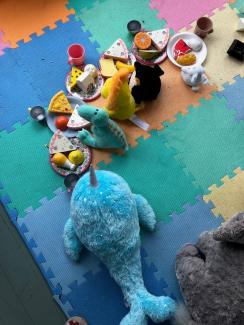
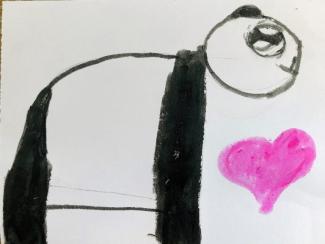
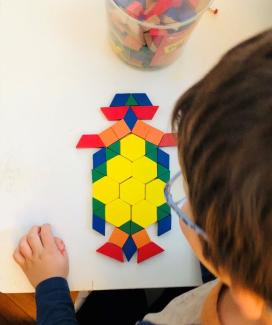
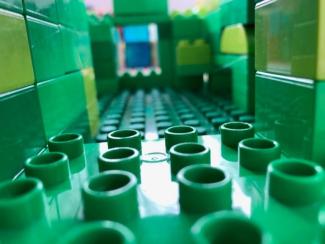
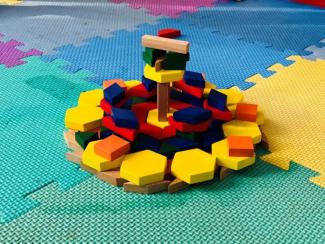
The Authors
Dr. Milagros Nores is the Co-Director for Research and Research Professor at the National Institute for Early Education Research (NIEER). With a profound expertise in early childhood evaluation, informing data-driven policy and programming, cost and benefits of early interventions, evaluation design, equity, and English language learners, she has established herself as a leading researcher in the field of early care and education.
About NIEER
The National Institute for Early Education Research (NIEER) at the Graduate School of Education, Rutgers University, New Brunswick, NJ, conducts and disseminates independent research and analysis to inform early childhood education policy.
